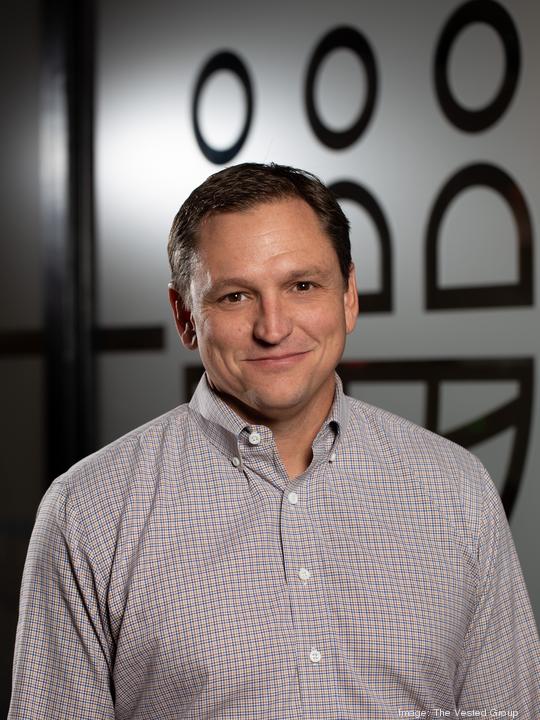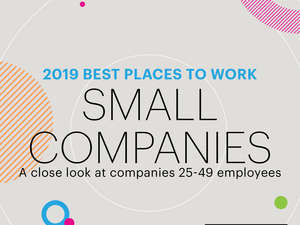
Forty million tons – that’s the amount of electronic waste The Vested Group says is produced each year globally. And it’s from this pile up of largely consumer goods that the company takes the title of its newly released film.
With a mission to grow its business through giving back, the Plano-based NetSuite solutions provider has funded a 24-minute documentary called “Silicon Mountain,” aimed at exploring the causes of the issue and ways the electronics recyclers are working to solve it.
“It’s easy to describe but it’s a really complex problem,” Joel Patterson, The Vested Group founder, told NTX Inno. “We wanted to create some awareness with them film so that as many people as possible will want to spend the time to watch it and learn about what’s going on. And hopefully, have an impact enough that would get them to do something about it. I think that’s the biggest hurdle we all face is just awareness.”
The company’s experience in the e-waste industry began in 2013, not long after launching two years prior, after working with clients in the market. Though the company’s software was able to help manage some of the complexity of their business, The Vested Group found other pain points in the industry that couldn’t directly be affected through its tech, so Patterson decided raising awareness was the best route.
While making the film, Patterson said that he was shocked by some of the statistics they found like that only 12 percent of e-waste is recycled and that nearly 150 million smartphones are thrown away each year.
He said the recycling number hurts e-recycling companies because one of the biggest issues they have is finding the inventory to recycle or resell, especially in markets like Africa where technology that would be considered too old here can find a few more years of shelf life.
“We’re not trying to tell people that they can’t buy a new phone and we’re not trying to point our fingers at anybody, it’s really a matter of if I am going to buy a new phone, do something with the one that I currently have other than just throw it into a drawer or throw it in the garbage,” Patterson said.
He said another one of the largest issues affecting e-recycling that The Vested Group came across while making the documentary was what’s called right to repair. He said many e-waste companies struggle with technologies that are only able to be fixed by licensed technicians of the company that produced the product, making it hard for them to find secondary uses for the components.
“If you bought something, I can never get my head around why can’t I fix it. If I feel like I want to try it, why can’t I do it? It’s a really big problem,” Patterson said.
Patterson said a large part of the issue is raising awareness in consumers. And he hopes that viewer’s takeaway is three-fold: repair your old technology devices if you can, recycle if you can’t and stay involved with pushing for change.
Though the purpose of “Silicon Mountain” is to raise awareness, there is a business component involved for The Vested Group. Part of the inspiration for the short film came from a conscious capitalism conference in 2019, where Patterson saw another film about a company that had grown through its work with nonprofits. He said he hope through “Silicon Mountain,” it will help the Vested Group make a mark on the industry and help its clients grow in the process.
“(We) really believe that businesses is the way for most people to be able to give back in some capacity, and so we thought, ‘Hey, let’s make a film,” Patterson said.
In addition, Patterson said he hopes the film helps make an impact on The Vested Group’s 60-person workforce. Adding that since the workplace is where a majority of people’s day is spent it is important for companies to create work that is not only engaging from a business standpoint but also impactful to the larger community it operates in.
According to Patterson The Vested Group’s workforce is 26 percent non-white and 32 percent female.
“It’s incumbent upon us to do things that make sense not just to the bottom line but also to our employees,” Patterson said.
The Vested Group is hoping to get more than 1 million views on the documentary in the hopes of creating a buzz around producing a full-length film, something that was put on hold as the company learned the business of film making and realized it costs more and takes longer to produce than originally thought.
However, as it continues to walk the talk, The Vested Group is planning to host an electronics recycling drive at its Plano headquarters on Nov. 14. And it is hoping to make e-recycling a permanent fixture at its offices, as it works through the process of setting up a permanent electronics drop-off site. All of the electronics gathered will be wiped of all data and sent to a local e-recycler.
“As an organization, we’re big believers in having purpose, and that’s not just having purpose with our employees and the job that were doing but also we want to do good… when you look at what we do for work, how we help clients and looking for ways to give back to the community, this is a very simple way for us to do so and also serve a purpose for our people,” Patterson said.
Check out "Silicon Mountain" below.





